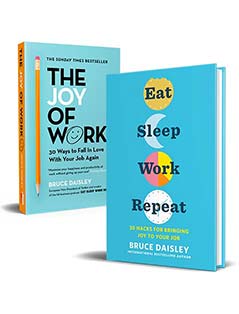Sweeping the sheds – what can we learn from the culture of the All Blacks
Health warning: sport is sometimes a flawed metaphor when it comes to work, it is often very male and half of every audience isn’t interested in the stories that come from it. Personally I have no especial interest or understanding of rugby, but I was captivated with this as a study of culture – if this one isn’t for you I think you will love the next episode about the Ben Horowitz book.
The All Blacks are the most successful rugby team of all time, in fact they have been called the most successful team in any sport. Drawing their players from a male population of just 2.5m New Zealand adult men, they don’t have any size advantage of the pool they draw from (if size determined outcome then England have more rugby players than the rest of the world combined). But the importance of team values have helped the team create and sustain a meaningful connection with the legacy of the team.
‘Culture is like an organism, continually growing and changing’.
At the heart of the All Blacks culture is a veneration of integrity. James Kerr defines this in a simple and memorable way, ‘integrity is honouring your word’.
The way that culture is passed forwards is through behaviours and rituals. The rituals of the All Blacks are vital. Of course even non-rugby fans are familiar with the importance of the haka but their rituals extend beyond the symbolic greeting that the team use to address their opponents. The rituals extend into traditions, ‘When the All Blacks travel across the halfway point of the Severn Bridge on their way to play Wales, they stand up in the bus and shout, “We never lose to Wales!”’
As Kerr says:
‘Rituals reflect, remind, reinforce and reignite the central story. They make it real in a vital, visceral way. From induction ceremonies to first caps, the haka to the hierarchies – they are the framework that holds the belief system in place. When the All Blacks perform the haka – or stand up on the bus to Wales and shout – they are connecting to something greater than themselves. They are making the metaphor their own, connecting their personal story to that of the team.’
More than anything the All Blacks culture demonstrates that great culture is about making people care enough to put extra effort into doing their work to the highest quality. The All Blacks achieve this by embracing their incredible history.
‘When a player makes the All Blacks, they’re given a book. It’s a small black book, bound in fine leather, and beautiful to hold. The first page shows a jersey – that of the 1905 Originals, the team that began this long whakapapa. On the next page is another jersey, that of the 1924 Invincibles, and on the page after, another jersey, and another, and so on until the present day… The next few pages of this All Black handbook remind you of the principles, the heroes, the values, the standards, the code of honour, the ethos, the character of the team.
The rest of the pages are blank. Waiting to be filled.
It’s time to make your mark, they say. Your contribution. It’s time to leave a legacy. Your legacy. It’s your time.










